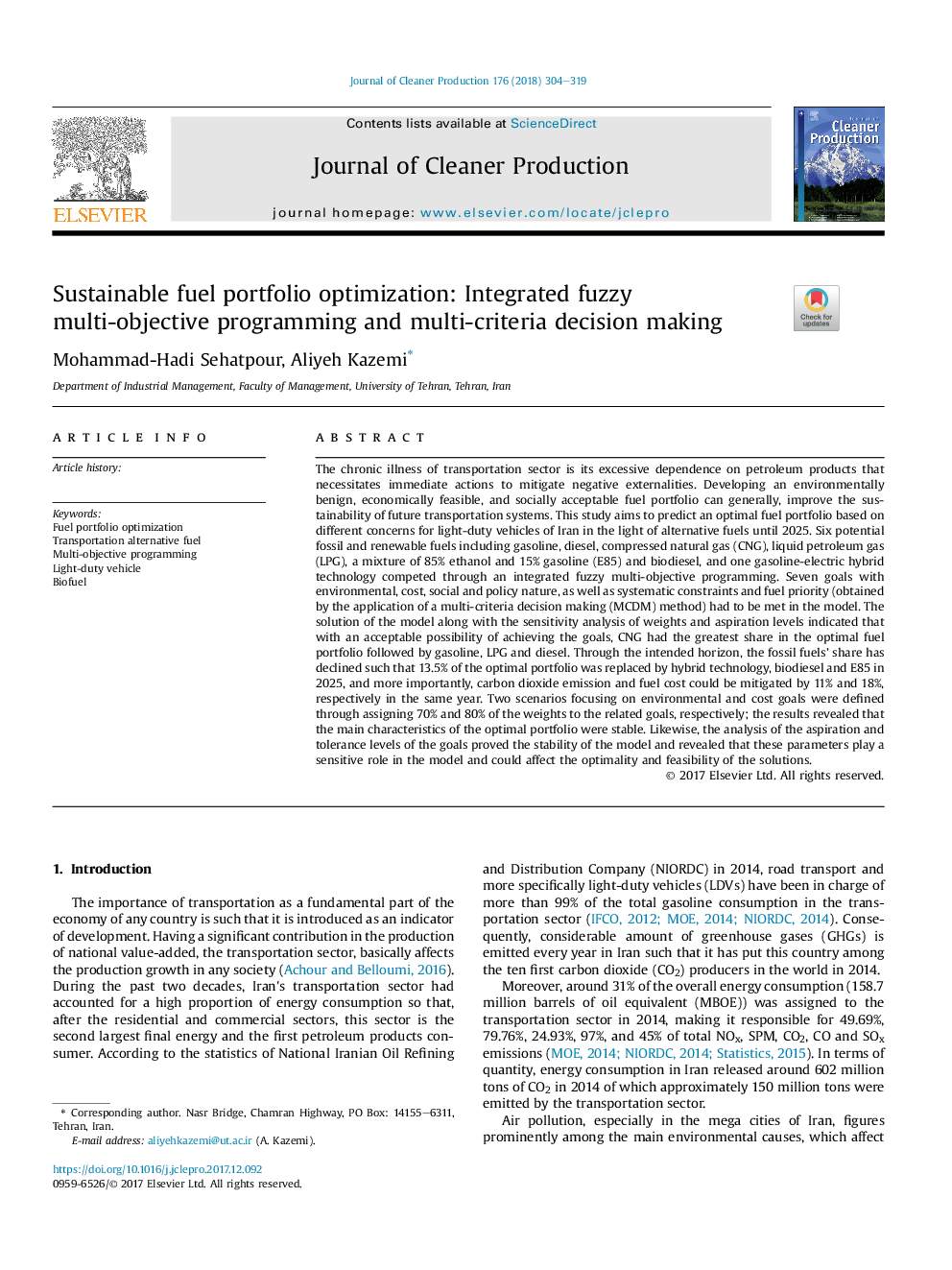ترجمه فارسی عنوان مقاله
بهینه سازی پرتفوی سوخت پایدار: یکپارچه سازی برنامه ریزی چند هدفه فازی و تصمیم گیری چند معیاره
عنوان انگلیسی
Sustainable fuel portfolio optimization: Integrated fuzzy multi-objective programming and multi-criteria decision making
| کد مقاله | سال انتشار | تعداد صفحات مقاله انگلیسی |
|---|---|---|
| 111160 | 2018 | 16 صفحه PDF |
منبع

Publisher : Elsevier - Science Direct (الزویر - ساینس دایرکت)
Journal : Journal of Cleaner Production, Volume 176, 1 March 2018, Pages 304-319
ترجمه کلمات کلیدی
بهینه سازی نمونه کارها سوخت، سوخت جایگزین، برنامه نویسی چند هدفه وسیله نقلیه سبک، سوخت های زیستی،
کلمات کلیدی انگلیسی
Fuel portfolio optimization; Transportation alternative fuel; Multi-objective programming; Light-duty vehicle; Biofuel;

